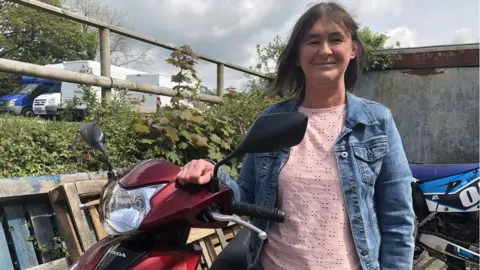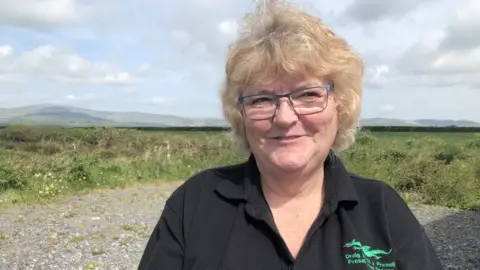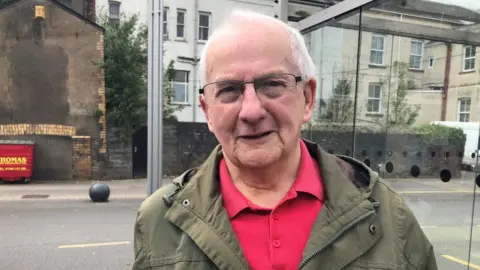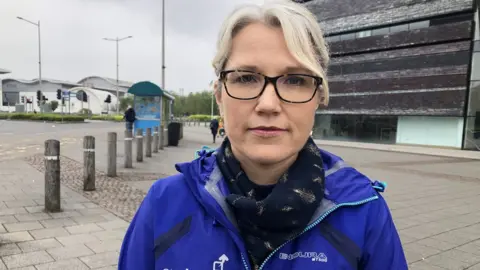Cost of living crisis: Hospital worker rents moped to commute
 BBC
BBCA hospital worker rents a moped from a charity to get to work because running a personal vehicle is expensive and bus services are too infrequent.
Nicola Nolan, from Pembrokeshire, also said the bus service was not regular enough to accommodate shift work.
Charity Sustrans Cymru has said the pandemic and the cost of living crisis have made the problem worse for many.
The Welsh government said it was investing in services that help travel in an "affordable and convenient" way.
Ms Nolan rents the moped because her motorbike broke down and she cannot afford to replace it, and the bus service is too expensive and runs near her home only twice a day. The bus schedule also does not fit in with her shifts.
She said the moped is cheap and convenient.
"Where I live, which is in the countryside, there are two buses a day and a shuttle which you have to book in advance," she said.
"It's helped a little but it's meant having to change my shifts at work. You have to plan ahead and plan in advance which isn't always possible.
"The scooter is something like £8 to fill the tank which will last me a week and it's a lot cheaper than running a car and anything else."

Nicola rents her moped from the Preseli Rural Transport Association, and its manager Caroline Wilson says transport is becoming too expensive.
Ms Wilson said: "There are more people coming on board our schemes at the moment. The price of fuel and lack of money in people's pockets is beginning to bite so they're coming on board.
"A lot of people have had to give up their cars because they can't afford to run them or they've had to give up their driving license maybe because of a medical reason as they get older."
In Ebbw Vale, bus passenger Roy Cunningham, 81, said there were fewer buses running through the town.

He said: "The services can be unreliable and I find that I can't get a bus to the big Grange Hospital now as well. At my age it can be difficult to get about."
In a report due to be published, Sustrans Cymru said people on lower incomes, those living in rural areas, or in areas with high levels of deprivation are most affected by transport poverty.
It also said that since 2010, buses have decreased by 17.8%. Consequently, 12% of people do not have any public transport links within their area.
Rail fares have also increased by 3.8% this year, which is the biggest hike in nine years.

Christine Boston, director of Sustrans Cymru, said: "Too many people are struggling with access to transport. The impact of Covid and cost of living crisis means that transport is becoming a luxury for some people who can afford it and everyone else is excluded.
"The majority of local authorities have over half their populations paying more than 10% of their household income on transport, which is the level considered for being in transport poverty. It is even worst in valleys communities with more than half of households facing those costs.
"Vulnerable groups are affected even more like older people who struggle to access health care, as well as children who are unable to access after school clubs and people with disabilities who find themselves struggling to access work as a result."
The charity said it believes all households in Wales should have a variety of safe, affordable, accessible and sustainable transport options to choose from and that Welsh Government should set standards for delivery now to ensure goals are met by 2040.
Deputy Minister for Climate Change Lee Waters said: "Our new transport strategy published a year ago put delivering social justice alongside tackling climate change at the heart of our approach.
"Since then we have frozen road schemes with a view to shifting investment into public transport and we have just published plans for a radical new law to shake-up the bus industry in Wales.
"With an estimated 80% of bus users entirely reliant on public transport we are determined to invest more in services that help people on lower incomes to get around in a way that is affordable and convenient."

- LIFE IS SWEET: Picture perfect cakes and the people who make them
- HEY, MACH ARENA: Highlights from the Machynlleth Comedy Festival 2022

